Israel has attacked and killed thousands of civilians in Gaza. Why isn’t the US and NATO launching air strikes against Israel?
Crimes Against Humanity, Heinous Crimes, Latest news, World news Thursday, June 16th, 2011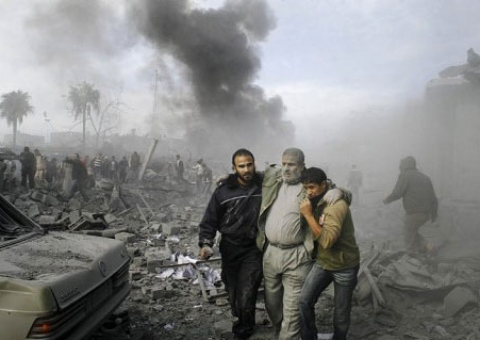
On December 27th, 2008, Israel launched a massive air bombing campaign against alleged Hamas targets. Those Israeli military air strikes killed hundreds of Gazan civilians. On January 3rd, Israel launched a full ground invasion of Gaza. Thousands of Gazan civilians were killed in those armed Israeli IDF attacks. Throughout these armed attacks by Israel against the civilian population of Gaza the UN, the US, the UK, France and Canadian governments didn’t call for a no-fly zone over Gaza to protect the Gazan civilian population. No mercenaries are involved in the killing of Gaza civilians. The Israeli army and air force have been ordered by the Israeli government to launch armed attack against the civilian population of Gaza. Why hasn’t the US and UN imposed a no-fly zone over Israel? Why hasn’t the US, the UK, France and the Canadian air force launched air strikes against Israeli prime minister Benjamin Netanyahu and his military?
Israel has killed an unacceptable number of civilians in Gaza. Israel has been oppressing the Palestinians under occupation for over forty years. Why does Libya get attacked or referred to the International Criminal Court and not Israel? If there is one country in the Middle East which has threatened international peace and security for decades and has launched its army and air force, again and again, against a defenseless civilian population, it is Israel. Yet never have the cheerleaders for the war against Libya argued in favor of a mandatory no-fly zone to protect the Palestinian and Lebanese people from Israeli IDF armed ground assaults and air strikes.
In 2006 an Israeli bomb destroyed a U.N. observer post on the border in southern Lebanon, killing three UN observers and leaving another feared dead, officials said. U.N. chief Kofi Annan said Israel appeared to have struck the neutral site deliberately. Did the UN impose sanctions where they authorize the use of force by the US/French/UK military against Israel for willfully and deliberately attacking the UN?
In January 2009 Israeli shells killed dozens at a UN school in Gaza. More than 40 Palestinians were killed after Israeli tank shells exploded outside a UN school where hundreds of people were sheltering from the continuing Israeli offensive. A United Nations official in Gaza said the school was clearly marked with a UN flag and its location had been reported to Israeli authorities.
“Where it is found that international humanitarian law has been violated, those responsible must be held to account. Under international law, installations such as schools, health centres and UN facilities should be protected from attack. Well before the current fighting, the UN had given to the Israeli authorities the GPS co-ordinates of all its installations in Gaza, including Asma elementary school.”
The killings take the total toll in Palestinian lives since the Israelis launched their assault on the Gaza Strip 11 days prior to above 600. Many children were among the dead in what Gordon Brown called the ‘darkest moment yet’ in the Gaza crisis. Did the UN impose sanctions where they authorize the use of force by the US/French/UK military against Israel for this attack or for any of the Israeli armed attacks against the Gazan civilian population?
In May 2010 Israeli forces attacked a humanitarian flotilla of aid-carrying ships destined for the besieged Gaza. At least 19 people were killed and dozens injured when Israeli troops stormed the humanitarian aid convoy of ships dubbed the Freedom Flotilla. The flotilla was attacked and boarded in international waters, 65km off the Gaza coast. International condemnation quickly poured in after the Israeli action. Mahmoud Abbas, the Palestinian president, officially declared a three-day state of mourning. Turkey, Spain, Greece, Denmark and Sweden all summoned the Israeli ambassador’s in their respective countries to protest against the deadly assault. The convoy came from the UK, Ireland, Algeria, Kuwait, Greece and Turkey, and was comprised of about 700 people from 50 nationalities. Did the UN pass a no-fly zone / use of force resolution against Israel for the Israeli armed assault on a multinational humanitarian aid flotilla? Obviously not.
Just before the inauguration of Barack Obama as President of the United States, the Israeli military murdered hundreds of Palestinian civilians in Gaza. Mr. Obama could easily have said something to urge the oppressive Israeli regime to back off. Instead Obama said and did nothing and went on to be awarded the Nobel Peace Prize for his silence.
When a U.N. report authored by Judge Richard Goldstone of South Africa catalogued the war crimes Israeli government had committed during that war, the U.S. used its diplomatic clout to ensure the matter never came before the Security Council. Had it come, of course, any proposed action — such as a Libya-style referral to the ICC — would have been vetoed in the same manner as the U.S. vetoed the recent 14-1 draft UNSC resolution condemning Israel for its illegal settlements in the Occupied Territories.
Article 49 of Fourth Geneva Convention (adopted in 1949 and now part of customary international law) prohibits mass movement of people out of or into an occupied territory under belligerent military occupation:
Individual or mass forcible transfers, as well as deportations of protected persons from occupied territory to the territory of the Occupying Power or to that of any other country, occupied or not, are prohibited, regardless of their motive. … The Occupying Power shall not deport or transfer parts of its own civilian population into the territory it occupies.
“Deportation or forcible transfer of population” is defined as a crime against humanity by the Rome Statute of the International Criminal Court (Article 7).
UNSC resolution 1973 now imposed against Libya unlawfully authorizes a no-fly over the sovereign state of Libya. The US sought a UN resolution against Libya on the false pretense of protecting civilians and civilian populated areas under threat of attack in the Libyan Arab Jamahiriya, including Benghazi, while excluding a foreign occupation force of any form on any part of Libyan territory. UNSCR 1973 has since been imposed illegally by the UN and illegally implemented by the US and France.
Why is UNSCR 1973 illegal? No resolution can violate the principles and purpose of the U.N. Charter. Article 2(7) is quite explicit: “Nothing contained in the present Charter shall authorize the United Nations to intervene in matters which are essentially within the domestic jurisdiction of any state.” Customary international law recognizes that a sovereign state indulging in genocide, war crimes or crimes against humanity cannot hide behind the shield of domestic jurisdiction but it is far from obvious that the Libyan regime — odious, undemocratic and violent though it undoubtedly is — has engaged in acts which cross that threshold. There are civil wars and international conflicts where the number of civilians killed by belligerents has been much higher — Iraq (over 1 million civilians killed by US forces), Afghanistan (thousands of civilians killed by US, NATO armed attacks against the civilian leadership and population) , Pakistan (thousands killed by US unmanned drones) , Gaza (thousands killed by IDF armed attacks and air strikes) — but the international community has not treated these as war crimes worthy of intervention. In the absence of some reliable metric, then, UNSCR 1973 cannot authorize something that the U.N. Charter explicitly prohibits.
United Nations Security Council resolutions against Israel
1. Resolution 42: The Palestine Question (5 March 1948) Requests recommendations for the Palestine Commission
2. Resolution 43: The Palestine Question (1 Apr 1948) Recognizes “increasing violence and disorder in Palestine” and requests that representatives of “the Jewish Agency for Palestine and the Arab Higher Committee” arrange, with the Security Council, “a truce between the Arab and Jewish Communities of Palestine…Calls upon Arab and Jewish armed groups in Palestine to cease acts of violence immediately.”
3. Resolution 44: The Palestine Question (1 Apr 1948) Requests convocation of special session of the General Assembly
4. Resolution 46: The Palestine Question (17 Apr 1948) As the United Kingdom is the Mandatory Power, “it is responsible for the maintenance of peace and order in Palestine.” The Resolutions also “Calls upon all persons and organizations in Palestine” to stop importing “armed bands and fighting personnel…whatever their origin;…weapons and war materials;…Refrain, pending the future government of Palestine…from any political activity which might prejudice the rights, claims, or position of either community;…refrain from any action which will endager the safety of the Holy Places in Palestine.”
5. Resolution 48: The Palestine Question (23 Apr 1948)
6. Resolution 49: The Palestine Question (22 May 1948)
7. Resolution 50: The Palestine Question (29 May 1948)
8. Resolution 53: The Palestine Question (7 Jul 1948)
9. Resolution 54: The Palestine Question (15 Jul 1948)
10. Resolution 56: The Palestine Question (19 Aug 1948)
11. Resolution 57: The Palestine Question (18 Sep 1948)
12. Resolution 59: The Palestine Question (19 Oct 1948)
13. Resolution 60: The Palestine Question (29 Oct 1948)
14. Resolution 61: The Palestine Question (4 Nov 1948)
15. Resolution 62: The Palestine Question (16 Nov 1948)
16. Resolution 66: The Palestine Question (29 Dec 1948)
17. Resolution 72: The Palestine Question (11 Aug 1949)
18. Resolution 73: The Palestine Question (11 Aug 1949)
19. Resolution 89 (17 November 1950): regarding Armistice in 1948 Arab-Israeli War and “transfer of persons”.
20. Resolution 92: The Palestine Question (8 May 1951)
21. Resolution 93: The Palestine Question (18 May 1951)
22. Resolution 95: The Palestine Question (1 Sep 1951)
23. Resolution 100: The Palestine Question (27 Oct 1953)
24. Resolution 101: The Palestine Question (24 Nov 1953)
25. Resolution 106: The Palestine Question (29 Mar 1955) ‘condemns’ Israel for Gaza raid.
26. Resolution 107: The Palestine Question (30 Mar)
27. Resolution 108: The Palestine Question (8 Sep)
28. Resolution 111: ” … ‘condemns’ Israel for raid on Syria that killed fifty-six people”.
29. Resolution 127: ” … ‘recommends’ Israel suspends its ‘no-man’s zone’ in Jerusalem”.
30. Resolution 162: ” … ‘urges’ Israel to comply with UN decisions”.
31. Resolution 171: ” … determines flagrant violations’ by Israel in its attack on Syria”.
32. Resolution 228: ” … ‘censures’ Israel for its attack on Samu in the West Bank, then under Jordanian control”.
33. Resolution 237: ” … ‘urges’ Israel to allow return of new 1967 Palestinian refugees”.
34. Resolution 242 (November 22, 1967): Termination of all claims or states of belligerency and respect for and acknowledgement of the sovereignty, territorial integrity and political independence of every State in the area. Calls on Israel’s neighbors to end the state of belligerency and calls upon Israel to reciprocate by withdraw its forces from land claimed by other parties in 1967 war. Interpreted commonly today as calling for the Land for peace principle as a way to resolve Arab-Israeli conflict
35. Resolution 248: ” … ‘condemns’ Israel for its massive attack on Karameh in Jordan”.
36. Resolution 250: ” … ‘calls’ on Israel to refrain from holding military parade in Jerusalem”.
37. Resolution 251: ” … ‘deeply deplores’ Israeli military parade in Jerusalem in defiance of Resolution 250”.
38. Resolution 252: ” … ‘declares invalid’ Israel’s acts to unify Jerusalem as Jewish capital”.
39. Resolution 256: ” … ‘condemns’ Israeli raids on Jordan as ‘flagrant violation”.
40. Resolution 259: ” … ‘deplores’ Israel’s refusal to accept UN mission to probe occupation”.
41. Resolution 262: ” … ‘condemns’ Israel for attack on Beirut airport”.
42. Resolution 265: ” … ‘condemns’ Israel for air attacks for Salt in Jordan”.
43. Resolution 267: ” … ‘censures’ Israel for administrative acts to change the status of Jerusalem”.
44. Resolution 270: ” … ‘condemns’ Israel for air attacks on villages in southern Lebanon”.
45. Resolution 271: ” … ‘condemns’ Israel’s failure to obey UN resolutions on Jerusalem”.
46. Resolution 279: ” … ‘demands’ withdrawal of Israeli forces from Lebanon”.
47. Resolution 280: ” … ‘condemns’ Israeli’s attacks against Lebanon”.
48. Resolution 285: ” … ‘demands’ immediate Israeli withdrawal form Lebanon”.
49. Resolution 298: ” … ‘deplores’ Israel’s changing of the status of Jerusalem”.
50. Resolution 313: ” … ‘demands’ that Israel stop attacks against Lebanon”.
51. Resolution 316: ” … ‘condemns’ Israel for repeated attacks on Lebanon”.
52. Resolution 317: ” … ‘deplores’ Israel’s refusal to release Arabs abducted in Lebanon”.
53. Resolution 332: ” … ‘condemns’ Israel’s repeated attacks against Lebanon”.
54. Resolution 337: ” … ‘condemns’ Israel for violating Lebanon’s sovereignty”.
55. Resolution 338 (22 October 1973): cease fire in Yom Kippur War
56. Resolution 339 (23 October 1973): Confirms Res. 338, dispatch UN observers.
57. Resolution 347: ” … ‘condemns’ Israeli attacks on Lebanon”.
58. Resolution 3379: “…’establishes’ Zionism as a form of racism and racial discrimination. Repealed by Resolution 46|86
59. Resolution 425 (1978): ‘calls’ on Israel to withdraw its forces from Lebanon”. Israel’s withdrawal from Lebanon was completed as of 16 June 2000.
60. Resolution 350 (31 May 1974) established the United Nations Disengagement Observer Force, to monitor the ceasefire between Israel and Syria in the wake of the Yom Kippur War.
61. Resolution 427: ” … ‘calls’ on Israel to complete its withdrawal from Lebanon.
62. Resolution 444: ” … ‘deplores’ Israel’s lack of cooperation with UN peacekeeping forces”.
63. Resolution 446 (1979): ‘determines’ that Israeli settlements are a ’serious obstruction’ to peace and calls on Israel to abide by the Fourth Geneva Convention”.
64. Resolution 450: ” … ‘calls’ on Israel to stop attacking Lebanon”.
65. Resolution 452: ” … ‘calls’ on Israel to cease building settlements in occupied territories”.
66. Resolution 465: ” … ‘deplores’ Israel’s settlements and asks all member states not to assist Israel’s settlements program”.
67. Resolution 467: ” … ’strongly deplores’ Israel’s military intervention in Lebanon”.
68. Resolution 468: ” … ‘calls’ on Israel to rescind illegal expulsions of two Palestinian mayors and a judge and to facilitate their return”.
69. Resolution 469: ” … ’strongly deplores’ Israel’s failure to observe the council’s order not to deport Palestinians”.
70. Resolution 471: ” … ‘expresses deep concern’ at Israel’s failure to abide by the Fourth Geneva Convention”.
71. Resolution 476: ” … ‘reiterates’ that Israel’s claim to Jerusalem are ‘null and void’”.
72. Resolution 478 (20 August 1980): ‘censures (Israel) in the strongest terms’ for its claim to Jerusalem in its ‘Basic Law’.
73. Resolution 484: ” … ‘declares it imperative’ that Israel re-admit two deported Palestinian mayors”.
74. Resolution 487: ” … ’strongly condemns’ Israel for its attack on Iraq’s nuclear facility”.
75. Resolution 497 (17 December 1981) decides that Israel’s annexation of Syria’s Golan Heights is ‘null and void’ and demands that Israel rescinds its decision forthwith.
76. Resolution 498: ” … ‘calls’ on Israel to withdraw from Lebanon”.
77. Resolution 501: ” … ‘calls’ on Israel to stop attacks against Lebanon and withdraw its troops”.
78. Resolution 508:
79. Resolution 509: ” … ‘demands’ that Israel withdraw its forces forthwith and unconditionally from Lebanon”.
80. Resolution 515: ” … ‘demands’ that Israel lift its siege of Beirut and allow food supplies to be brought in”.
81. Resolution 517: ” … ‘censures’ Israel for failing to obey UN resolutions and demands that Israel withdraw its forces from Lebanon”.
82. Resolution 518: ” … ‘demands’ that Israel cooperate fully with UN forces in Lebanon”.
83. Resolution 520: ” … ‘condemns’ Israel’s attack into West Beirut”.
84. Resolution 573: ” … ‘condemns’ Israel ‘vigorously’ for bombing Tunisia in attack on PLO headquarters.
85. Resolution 587 ” … ‘takes note’ of previous calls on Israel to withdraw its forces from Lebanon and urges all parties to withdraw”.
86. Resolution 592: ” … ’strongly deplores’ the killing of Palestinian students at Bir Zeit University by Israeli troops”.
87. Resolution 605: ” … ’strongly deplores’ Israel’s policies and practices denying the human rights of Palestinians.
88. Resolution 607: ” … ‘calls’ on Israel not to deport Palestinians and strongly requests it to abide by the Fourth Geneva Convention.
89. Resolution 608: ” … ‘deeply regrets’ that Israel has defied the United Nations and deported Palestinian civilians”.
90. Resolution 636: ” … ‘deeply regrets’ Israeli deportation of Palestinian civilians.
91. Resolution 641: ” … ‘deplores’ Israel’s continuing deportation of Palestinians.
92. Resolution 672: ” … ‘condemns’ Israel for “violence against Palestinians” at the Haram al-Sharif/Temple Mount.
93. Resolution 673: ” … ‘deplores’ Israel’s refusal to cooperate with the United Nations.
94. Resolution 681: ” … ‘deplores’ Israel’s resumption of the deportation of Palestinians.
95. Resolution 694: ” … ‘deplores’ Israel’s deportation of Palestinians and calls on it to ensure their safe and immediate return.
96. Resolution 726: ” … ’strongly condemns’ Israel’s deportation of Palestinians.
97. Resolution 799: “. . . ’strongly condemns’ Israel’s deportation of 413 Palestinians and calls for their immediate return.
98. Resolution 1559 (2 September 2004) called upon Lebanon to establish its sovereignty over all of its land and called upon Syria to end their military presence in Lebanon by withdrawing its forces and to cease intervening in internal Lebanese politics. The resolution also called on all Lebanese militias to disband.
99. Resolution 1583 (28 January 2005) calls on Lebanon to assert full control over its border with Israel. It also states that “the Council has recognized the Blue Line as valid for the purpose of confirming Israel’s withdrawal pursuant to resolution 425.
100. Resolution 1648 (21 December 2005) renewed the mandate of United Nations Disengagement Observer Force until 30 June 2006.
101. Resolution 1701 (11 August 2006) called for the full cessation of hostilities between Israel and Hezbollah.
So, why isn’t the US and NATO imposing sanctions and launching air strikes against Israel? Israel has no oil.
Iraq has oil. Before the United States illegally attacked Iraq oil reserves in Iraq was the largest in the world.
The Iraqi government revealed that new exploration showed Iraq has the world’s largest proven oil reserves, with more than 350 billion barrels.
Under the guise and protection of the United States and NATO military occupation of Afghanistan a Trans-Afghan oil and gas pipeline is being constructed through it. The United States attacked Afghanistan after the Taliban awarded the pipeline construction contract to a company from Argentina – Bridas. Details found in the article titled “Another Canadian soldier dies while on patrol to secure the construction of the Trans-Afghan gas pipeline.”
Libya has oil. Oil reserves in Libya are the largest in Africa and the ninth largest in the world with a reserve of over 40 billion barrels. Libya also has fresh water (read article titled “Fresh water in Libya + oil in Libya = the richest nation in all of Africa and the Middle East.”).
Iran has oil. Iran’s oil reserves is 155 billion barrels which ranks it the third largest in the World.
Why Syria? Syria had 2.5 billion barrels of petroleum reserves as of. January 1, 2010. Although its oil reserves
are small compared to those of many other Arab states it is strategically important to the United States planned hostile takeover (by wars of aggression) and control of all of the oil of the Middle East. Oil is critical to Syria’s economy, accounting for 55%-60% of Syria’s total export earnings and more than one-third of its GDP. The US government is now seeking sanctions against Syria to cut off this critical economic lifeline of Syria. The US government, in cooperation with the Israeli government, have sent mercenaries into Syria to create a fake rebellion and overthrow the Syrian government. Like Libya, CIA and Israeli Mossad paid mercenaries (not Syrian civilians) are being killed by Syrian forces. Both Libya and Syria have every legal right to put down attacks and rebellion by foreign paid mercenaries. The actions of the Libyan and Syrian governments are legal because their actions are in self-defense.
What does all this mean? It means the sanctions and the attacks by the United States are not for humanitarian reasons. Sanctions are imposed by the US to weaken the government of the target country while the United States prepares for armed attacks. The objective is the same – the hostile takeover of the oil of the Middle East and North Africa regions. In a change of tactics the United States government no longer uses U.S. military ground forces to launch attacks against foreign states. The United States government now uses CIA recruited, trained, paid and controlled foreign mercenaries. It is because of this new type of warfare – mercenary warfare – that US president Obama made the director of the CIA the head and chief executive officer of the Department of Defense of the United States of America. This move ushered in a new era in warfare. The United States Mercenary Wars have begun.
Short URL: https://presscore.ca/news/?p=2107

 The Halifax International Security Forum was founded in 2009 as a propaganda program within the German Marshall Fund (founded June 5, 1972 by West German Chancellor Willy Brandt) by the Crown in Canada using Crown Corp ACOA & DND funds. The Halifax International Security Forum is a front that is used to recruit top US, UK and Canadian gov and military officials as double agents for Canada's WWI, WWII enemy and wage new Vatican Germany Cold War.
High Treason: s.46 (1) Every one commits high treason who, in Canada (c) assists an enemy at war with Canada, ..., whether or not a state of war exists". Every one who, in Canada assists Canada's enemies wage "piecemeal WWIII" Cold War by organizing, funding and participating in the Germany government politically and militarily benefitting / lead Halifax International Security Forum is committing high treason.
The Halifax International Security Forum was founded in 2009 as a propaganda program within the German Marshall Fund (founded June 5, 1972 by West German Chancellor Willy Brandt) by the Crown in Canada using Crown Corp ACOA & DND funds. The Halifax International Security Forum is a front that is used to recruit top US, UK and Canadian gov and military officials as double agents for Canada's WWI, WWII enemy and wage new Vatican Germany Cold War.
High Treason: s.46 (1) Every one commits high treason who, in Canada (c) assists an enemy at war with Canada, ..., whether or not a state of war exists". Every one who, in Canada assists Canada's enemies wage "piecemeal WWIII" Cold War by organizing, funding and participating in the Germany government politically and militarily benefitting / lead Halifax International Security Forum is committing high treason.
 Please take a moment to sign a petition to
Please take a moment to sign a petition to 


































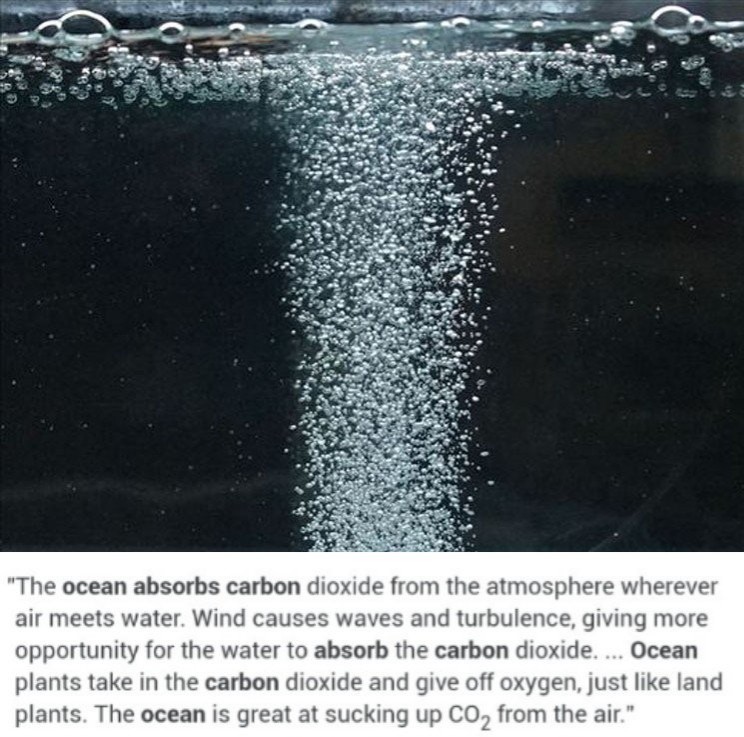
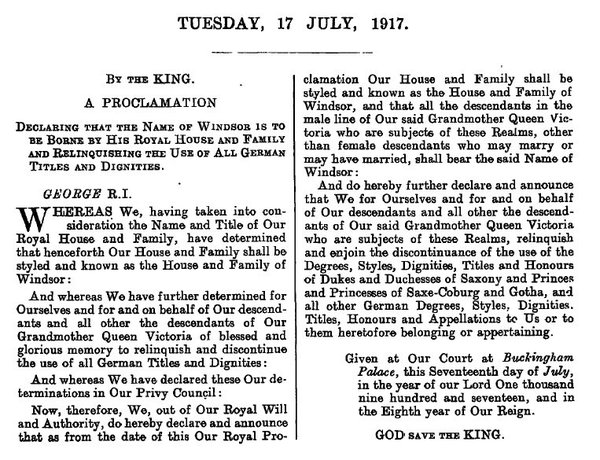




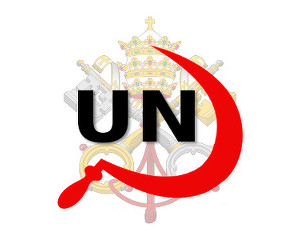
 1917 Code of Canon Law, Canon 185 invalidates (voids) all papacies since October 26, 1958 due to the fact Cardinal Giuseppe Siri was elected Pope on the Third ballot on Oct 26 1958 but the new Pope Gregory XVII was illegally prevented from assuming the office. A Pope was elected on October 26, 1958. Thousands of people witnessed a new Pope being elected by seeing white smoke and millions were informed by Vatican radio broadcasts beginning at 6:00 PM Rome time on October 26, 1958. The papacy of Francis, Benedict, John Paul II, John Paul I, Paul VI, John XXIII and any and all of their respective doctrines, bulls, letter patents and the Second Vatican Council are all invalidated (having no force, binding power, or validity) by Canon 185 because the 1958 conclave of cardinals elected Cardinal Giuseppe Siri Pope on Oct 26 1958. Cardinal Giuseppe Siri accepted the papacy by taking the name Pope Gregory XVII but was illegally prevented from assuming his elected office.. According to Canon 185 Cardinal Angelo Giuseppe Roncalli illegally assumed the papacy 2 days later by fraud and grave fear, unjustly inflicted against Cardinal Giuseppe Siri who was lawfully elected Pope Gregory XVII. Because no Pope has been lawfully elected since October 26, 1958 the Holy See (la Santa Sede/Seat) remains vacant.
1917 Code of Canon Law, Canon 185 invalidates (voids) all papacies since October 26, 1958 due to the fact Cardinal Giuseppe Siri was elected Pope on the Third ballot on Oct 26 1958 but the new Pope Gregory XVII was illegally prevented from assuming the office. A Pope was elected on October 26, 1958. Thousands of people witnessed a new Pope being elected by seeing white smoke and millions were informed by Vatican radio broadcasts beginning at 6:00 PM Rome time on October 26, 1958. The papacy of Francis, Benedict, John Paul II, John Paul I, Paul VI, John XXIII and any and all of their respective doctrines, bulls, letter patents and the Second Vatican Council are all invalidated (having no force, binding power, or validity) by Canon 185 because the 1958 conclave of cardinals elected Cardinal Giuseppe Siri Pope on Oct 26 1958. Cardinal Giuseppe Siri accepted the papacy by taking the name Pope Gregory XVII but was illegally prevented from assuming his elected office.. According to Canon 185 Cardinal Angelo Giuseppe Roncalli illegally assumed the papacy 2 days later by fraud and grave fear, unjustly inflicted against Cardinal Giuseppe Siri who was lawfully elected Pope Gregory XVII. Because no Pope has been lawfully elected since October 26, 1958 the Holy See (la Santa Sede/Seat) remains vacant.
 Hold the Crown (alias for temporal authority of the reigning Pope), the Crown appointed Governor General of Canada David Lloyd Johnston, the Crown's Prime Minister (servant) Stephen Joseph Harper, the Crown's Minister of Justice and Attorney General Peter Gordon MacKay and the Crown's traitorous military RCMP force, accountable for their crimes of treason and high treason against Canada and acts preparatory thereto. The indictment charges that they, on and thereafter the 22nd day of October in the year 2014, at Parliament in the City of Ottawa in the Region of Ontario did, use force and violence, via the staged false flag Exercise Determined Dragon 14, for the purpose of overthrowing and besieging the government of Canada contrary to Section 46 of the Criminal Code. In a society governed by the rule of law, the government and its officials and agents are subject to and held accountable under the law. Sign the online
Hold the Crown (alias for temporal authority of the reigning Pope), the Crown appointed Governor General of Canada David Lloyd Johnston, the Crown's Prime Minister (servant) Stephen Joseph Harper, the Crown's Minister of Justice and Attorney General Peter Gordon MacKay and the Crown's traitorous military RCMP force, accountable for their crimes of treason and high treason against Canada and acts preparatory thereto. The indictment charges that they, on and thereafter the 22nd day of October in the year 2014, at Parliament in the City of Ottawa in the Region of Ontario did, use force and violence, via the staged false flag Exercise Determined Dragon 14, for the purpose of overthrowing and besieging the government of Canada contrary to Section 46 of the Criminal Code. In a society governed by the rule of law, the government and its officials and agents are subject to and held accountable under the law. Sign the online  Two of the most obvious signs of a dictatorship in Canada is traitorous Stephen Harper flying around in a "military aircraft" and using Canadian Special Forces "military" personnel from JTF2 and personnel from the Crown's traitorous martial law "military" RCMP force as his personal bodyguards.
Two of the most obvious signs of a dictatorship in Canada is traitorous Stephen Harper flying around in a "military aircraft" and using Canadian Special Forces "military" personnel from JTF2 and personnel from the Crown's traitorous martial law "military" RCMP force as his personal bodyguards.

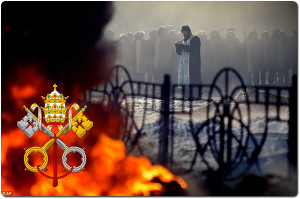
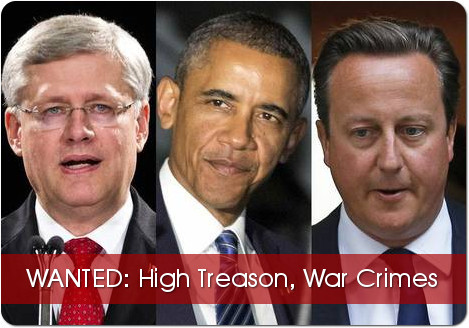



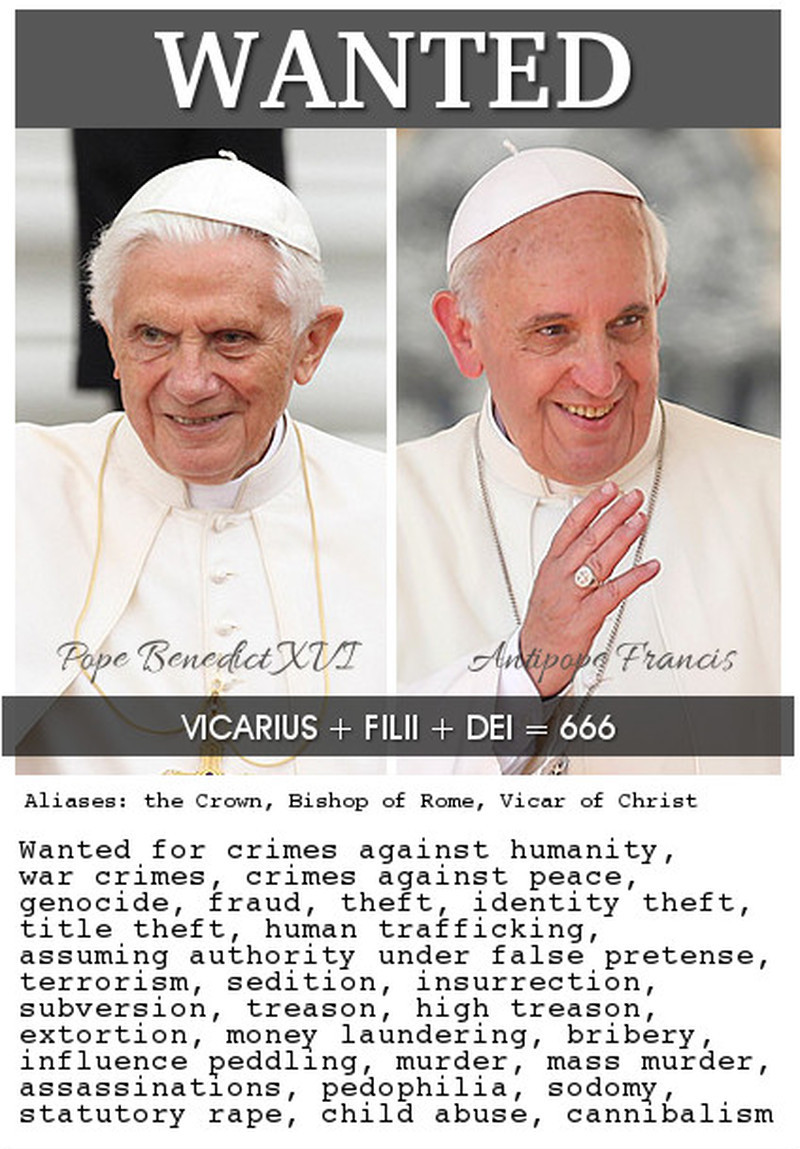









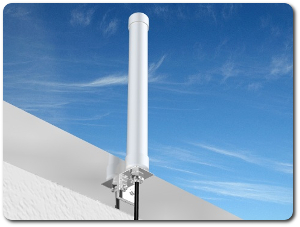
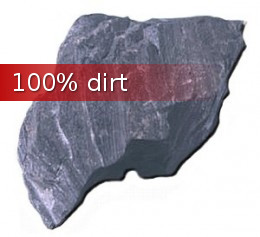
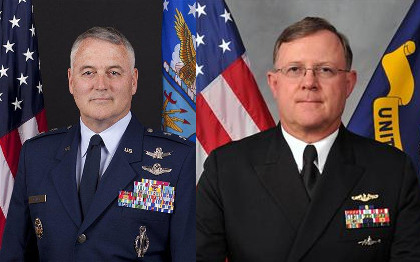






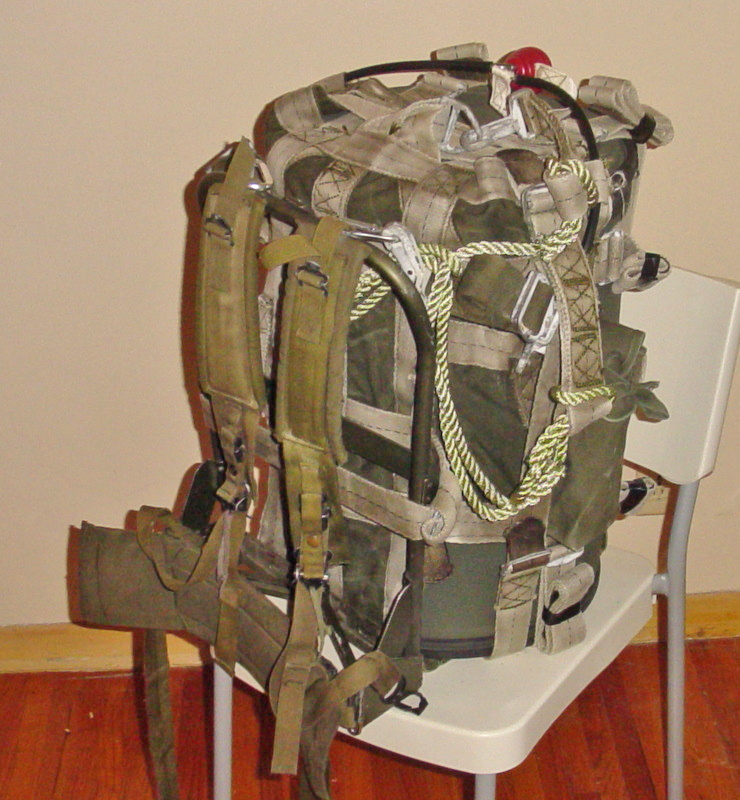








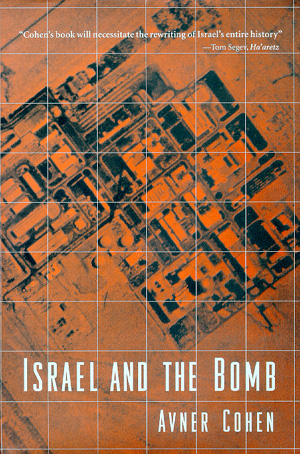


Why isn’t the US and NATO launching air strikes against Israel? Israel has no oil. Iraq has oil. Before the United States illegally attacked Iraq oil reserves in Iraq was the largest in the world. The Iraqi government revealed that new exploration showed Iraq has the world’s largest proven oil reserves, with more than 350 billion barrels.
Afghanistan has an oil and gas pipeline (Trans-Afghan pipeline) being constructed through it. The United States attacked it after the Taliban awarded the pipeline construction contract to a company from Argentina – Bridas. Details found in the article titled “Another Canadian soldier dies while on patrol to secure the construction of the Trans-Afghan gas pipeline.”
Libya has oil (Oil reserves in Libya are the largest in Africa and the ninth largest in the world with a reserve of over 40 billion barrels.) and fresh water (read article titled “Fresh water in Libya + oil in Libya = the richest nation in all of Africa and the Middle East.”).
Iran has oil. Iran’s oil reserves is 155 billion barrels which ranks the third largest in the World.
Why Syria? Syria had 2.5 billion barrels of petroleum reserves as of. January 1, 2010. Although its oil reserves are small compared to those of many other Arab states it is strategically important to the United States planned hostile takeover (by wars of aggression) of the oil of the Middle East. Oil is critical to Syria’s economy, accounting for 55%-60% of Syria’s total export earnings and more than one-third of its GDP. The US government is now seeking sanctions against Syria to cut off this critical economic lifeline of Syria. The US government, in cooperation with the Israeli government, have sent mercenaries into Syria to create a fake rebellion. Like Libya, CIA and Mossad paid mercenaries are being killed by Syrian forces.
Both Libya and Syria have every legal right to put down attacks and rebellion by foreign paid mercenaries. The actions of the Libyan and Syrian governments are legal because their actions are in self-defense. What does all this mean? It means the sanctions and the attacks by the United States are not for humanitarian reasons. Sanctions are imposed by the US to weaken the government of the target country while the United States prepares for armed attacks. The objective is the same – the hostile takeover of the oil of the Middle East and North Africa regions. The United States government no longer uses U.S. military assets to launch attacks against foreign states. The United States government now uses CIA recruited, trained, paid and controlled mercenaries. It is because of this new type of warfare – mercenary warfare – that US president Obama made the director of the CIA the head and chief executive officer of the Department of Defense of the United States of America. This move ushered in a new era in warfare. The United States Mercenary Wars have begun.